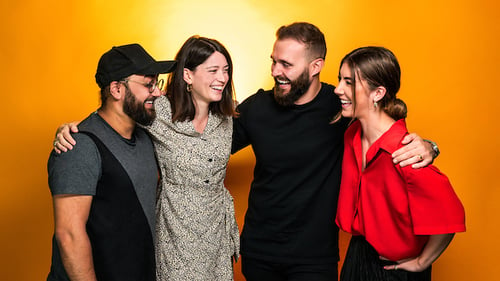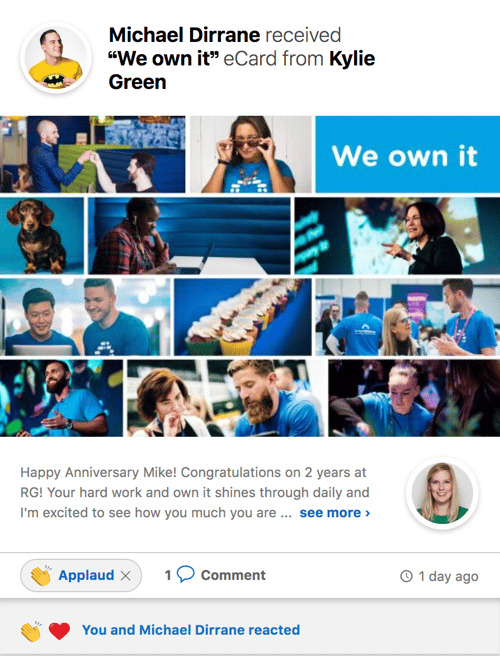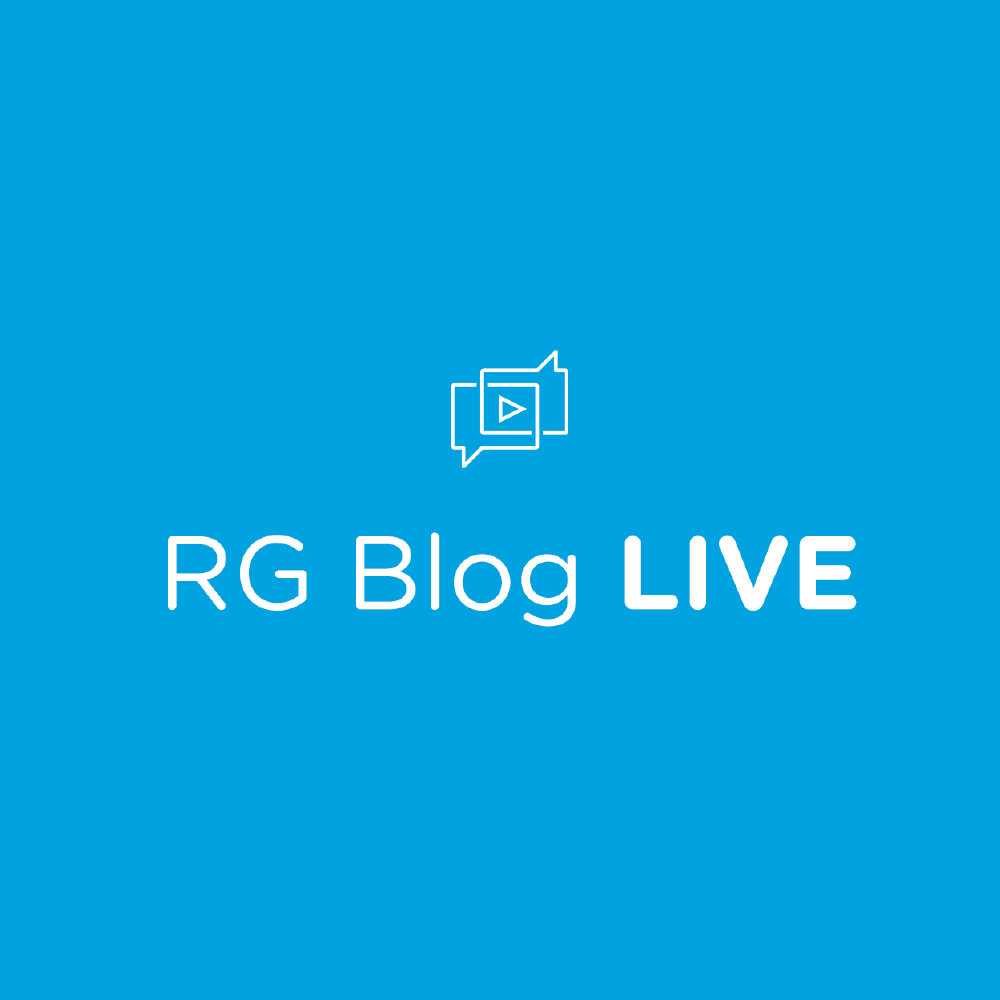6 min watch
Welcome back to RG Blog Live! In the first episode, Craig Tanner and I chatted about what a product manifesto is. This time, we’re shining a spotlight on the importance of evolution when it comes to reward and recognition programmes to make sure we’re continually reaching our people and providing value.
Take a peek at the second talk below on “RG Blog Live” where Craig and I discuss the evolution of reward and recognition.
Chloe Deiulis: Tell us a little bit about how the world of reward or recognition is changing.
Craig Tanner: It's developing, and it's becoming more front and centre. The cool thing I'm seeing is not just HR professionals taking interest in this, but it's actually becoming important at an executive level.
CEOs are getting involved because it's a very strategic thing to implement in your business. Recognition, when done strategically and correctly, reduces churn, increases profits, increases engagement and those are things that CEOs wonder about every single night. They stay up late, wondering about how do I drive the right business? It's really cool to see R&R (or recognition) really be front and centre now in businesses.
CD: Tell me a little bit about the old-school versus the new-school ways. How is it all working together?
CT: Yes. I don't know if I call it old school, new school, but the frame of thought has definitely matured as we've gone throughout time. It started with very scheduled recognition to reward – a 10-year-long service and that was great. I wouldn't say that there's a bad way to do recognition, but every single company has different, needs different businesses, and different employee bases.

That's why I think we really need to be strategic. What we've seen is as we've moved throughout time, it is really, really important especially as the workforce has changed and become younger. These millennials now make up the largest audience in the workforce.
CD: Hate those millennials. [laughter]
CT: When we're recognising those folks, long service is becoming a little bit less important. What they are looking for more today is making sure that they're connected with their manager, they're connected with their peers and people they work with every single day and they're really connected with the values.
That's one of the top things that folks will say why they chose a new company, they wanted to work for is because their beliefs matched up to that organisation.
When we're doing recognition now, we want it frequently, we want to be timely, we want to be genuine and human. It needs to be more than just, "Hey, you made it five years, here's this," it needs to be every single day that people are demonstrating great work, we need to be recognising that, observing it. Just that dynamic and mindset has changed, therefore, the software to facilitate that has needed to change as well.
CD: How can employers adapt to this changing landscape that we're seeing?
CT: Recognition is definitely not like one-size-fits-all, and every single company is different. We have what's called the recognition pyramid is something that we coach to and speak about, but it starts with peer to peer recognition, which I mentioned. It doesn't have to be point-based, it does not need to be currency based, it’s just getting folks involved and recognising one another.
Then you might want to layer on another step of that and take it a little bit further. Perfect recognition schemes, I don't know if there is a perfect recognition programme, but I think we improve over time. A great way to start is just how do we get managers or even just peers recognising one another for the right beliefs.
CD: When you're talking about the right beliefs, I'm assuming you're talking about company values, I know that's something we hold really near and dear here at Reward Gateway, I know a lot of our clients do as well. How does recognition reinforce your company values?
CT: Yes. That's a great question. We should be recognising within those values. It's okay to say, "Hey, happy birthday," and send an eCard for a birthday or an anniversary or something like that.
CD: I love my birthday, so. [chuckles]
CT: Yes, right. Those are great things. We see that like the turn of the new year, "Hey, thanks for a great year," but that's not going to anchor the employee back to the organisations. It's not going to anchor them and say, "I love working here." What we've seen that really drives that engagement is by saying, "Hey, there's these six beliefs or 10 beliefs, whatever it is, that we believe in, that's why you came on board to work for us, and your work is contributing to that and that's why I'm recognising."

That's what's really driving that connection. I love that word "connection." That connection between an employee and their peers and employee and their manager and the employee and the organisation.
CD: The word "recognition" has definitely changed, but our employees have too. How is technology keeping up with what employees are doing in their day-to-day lives?
CT: Yes. That's a really great question. We're dealing with an employee base, and they're spread throughout the world, a lot of teams aren't co-located anymore. A lot of them aren't going into an office every single day. Having technology that can still facilitate recognition that you can see and drive those behaviours, but mobile employee engagement apps are becoming extremely critical now.
We’re making sure that we're having the same capabilities for offline workers as those that are only connected online all day.
.jpg?width=500&name=RGmobile-mockup%20(1).jpg)
Those are questions that I'm asking myself every day that I know my product designer, my engineering team, we're making sure that we're keeping that in mind to designing and developing applications that are facilitating no matter the situation that they might be in, how do we still have those same behaviours, that same engagement across the board?
CD: All right. Well that wraps it up for me. Thank you so much again for joining me on our lovely little stage and thanks everyone who's watching. Until next time!

 Chloe Thompson
Chloe Thompson


